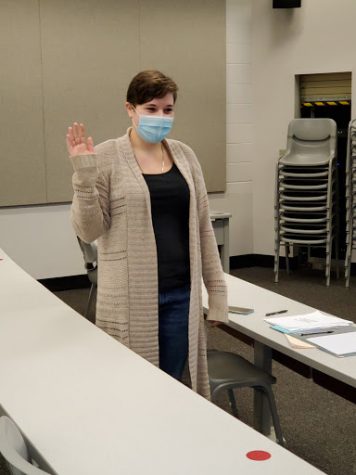Reproductive resources
Hormones rage.
Bodies heat up and then succumb, causing the nerve endings to quiver in anticipation of more pleasure.
However, the urge to acquire this momentary gratification could result in life-changing consequences.
Soon, the “I’m pregnant” texts start rolling in, and pop goes the scenario of unplanned pregnancy.
94 percent of unmarried adults 18 to 29 said they are knowledgeable enough to prevent unplanned pregnancies, according to The National Campaign to Prevent Teen and Unplanned Pregnancy.
However, the same research showed 11 percent of the same group know little to nothing about condoms and 40 percent know little to nothing about birth control pills.
The Campaign also found unplanned pregnancies and parental responsibilities can increase emotional and financial stress on young men and women. As a result, unplanned pregnancy accounts for the one in ten dropouts among female students nationally.
“It could cause a problem in academic performance and can add to the overall costs and demands for colleges, including increasing the need and cost for child care and other support services,” the Campaign states in a brief document of strategies to address unplanned pregnancy among college students.
Although IU Southeast does not have a clinic on campus, there are other places women can go to get the help they need, such as a primary care doctor or a Planned Parenthood health center.
According to the Planned Parenthood website, they are a health care provider that offers medical information to help patients have a better understanding of their sexuality.
The path to this understanding includes information about abortion, birth control, body image, women and men’s health care, sex, sexuality, relationships and sexual orientation.
One phone call to Planned Parenthood results in a list of referrals for abortion clinics in the Kentuckiana area.
According to their website, Planned Parenthood offers multiple forms of birth control.
There are two types of emergency contraceptives available. The first type is the ParaGard intrauterine device. The second type is the Levonorgestrel pill (Plan B brand), which should be used as soon as possible after having unprotected sex.
Judy Morrison, a receptionist in the Education and Training Department of Planned Parenthood, said they do not recommend anything to their patients.
She said they provide the information needed and counsel them so the patient can go home and discuss options with their significant other and/or family members.
Both locations of Planned Parenthood in Louisville and New Albany offer the following services: abortion referral, birth control, HIV testing, LGBT services, men’s and women’s health care, the morning after pill, pregnancy testing and services, STD testing, treatment and vaccines.
They accept cash, Medicaid and other forms of insurance. If the prospective patient still finds the services to be unaffordable, they should speak with Planned Parenthood to see what more can be done.
Choices for Women is another potential option for pregnant women.
It’s an anti-abortion resource center that provides help and support to patients with unplanned pregnancies.
This resource center offers information on parenting resources, fatherhood resources, pregnancy tests, STI/STD tests and information about adoption though they do not handle the adoptions themselves.
Rose Condra, executive director of Choices for Women, said one of the adoption agencies they refer patients to is St. Elizabeth Catholic Charities.
Even though Choices for Women doesn’t provide reproductive resources, perform abortions or refer abortions, they do provide their patients with free, confidential services.
STD tests, however, are not free. Condra said there is a lab fee of $20.
Robin Faith, a receptionist at Choices for Women, said patients have the opportunity to meet with a mentor every time they come in.
Faith said patients interested in using their services are required to make an appointment before coming to the facility.
Condra added that, after patients have their baby, they can continue to come to the classes the center offers. She said patients can come, learn, get support and get resources, such as car seats, diapers, bottles and formula.
Another place students could go to is Women Infants and Children (WIC).
WIC is a nutrition program that improves pregnant clients’ access to nutritious foods and resources for them to maintain a healthy lifestyle.
Sara Holubar, a senior in Spanish Education and former employee of WIC, said WIC offers nutrition and health screenings to patients.
WIC also provides nutrition education, counseling, breast-feeding promotion and support and referrals to other health, family and social services.
Representatives of Floyd Memorial Urgent Care Center on Charlestown Road stated all Floyd Memorial urgent care centers do not provide reproductive resources.
She said patients would have to go to their primary doctor, Planned Parenthood or Choices for Women in New Albany.
Baptist Health’s urgent care in Louisville only serves patients who need an x-ray, a TB test, a flu diagnosis, a pregnancy test, sprains, strains and school or sports physicals for students.
Patients should go to the emergency room if they’re in a life-threatening or disabling condition, including, but not limited to, severe shortness of breath, stroke, nonstop bleeding, unexplained or sudden loss of consciousness, obvious broken bones, or internal bleeding.
Information about and cost of the different types of contraception
Patch
Sticks on your skin.
$0-80 a month
Pill
Is easier if one doesn’t like getting a shot or the patch.
$0-50 a month
Ring
NuvaRing is one size and fits all.
Wear once a month for three weeks to avoid pregnancy.
$0-250 if needing an exam
$0-80 a month
Sponge
Plastic foam sponge that contains spermicide. It’s inserted before intercourse.
$0-15 for package of three sponges, depending on where you live.
Condoms
Two main condoms: latex and female.
Latex: $2-6 for packs of three
Female: $2-4
Shot
Shot is placed in the arm.
$0-100 per injection, plus any exam fees.
My name is Latach', it rhymes with Alaska. But you can call me Tassy. I'm a Theater and Journalism major and a Spanish and music minor. I love good music,...















